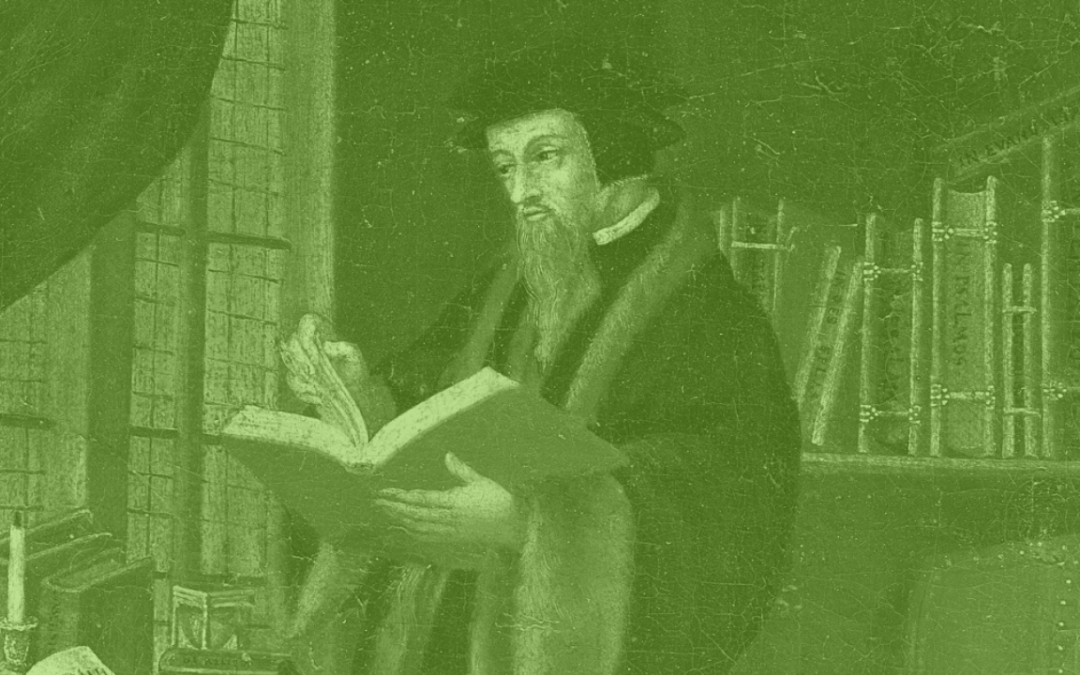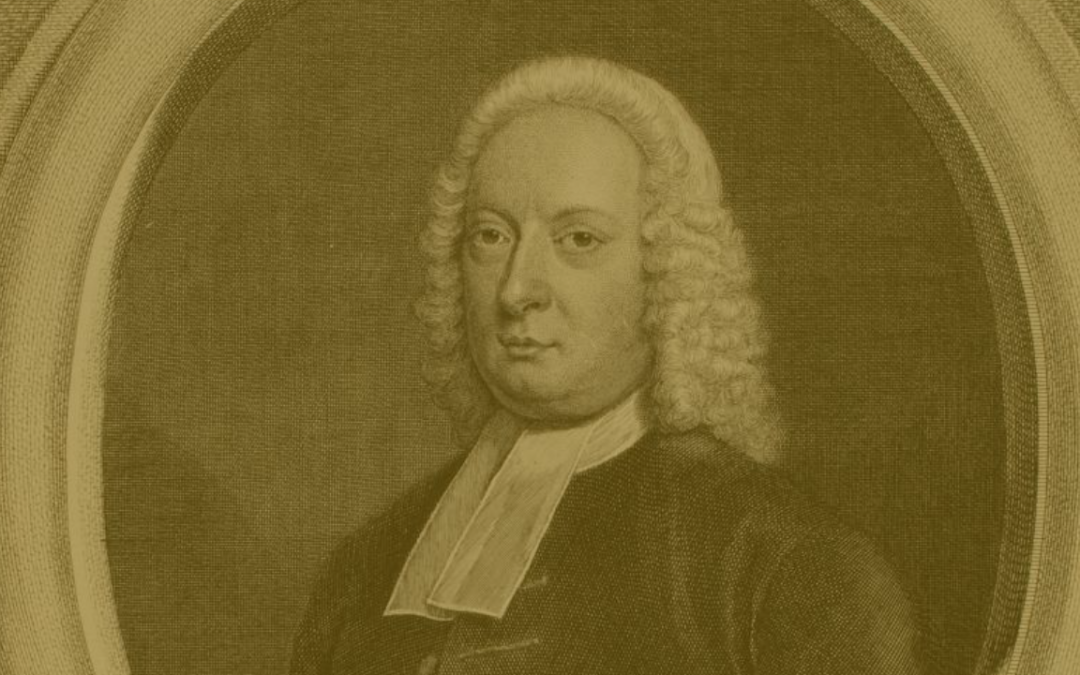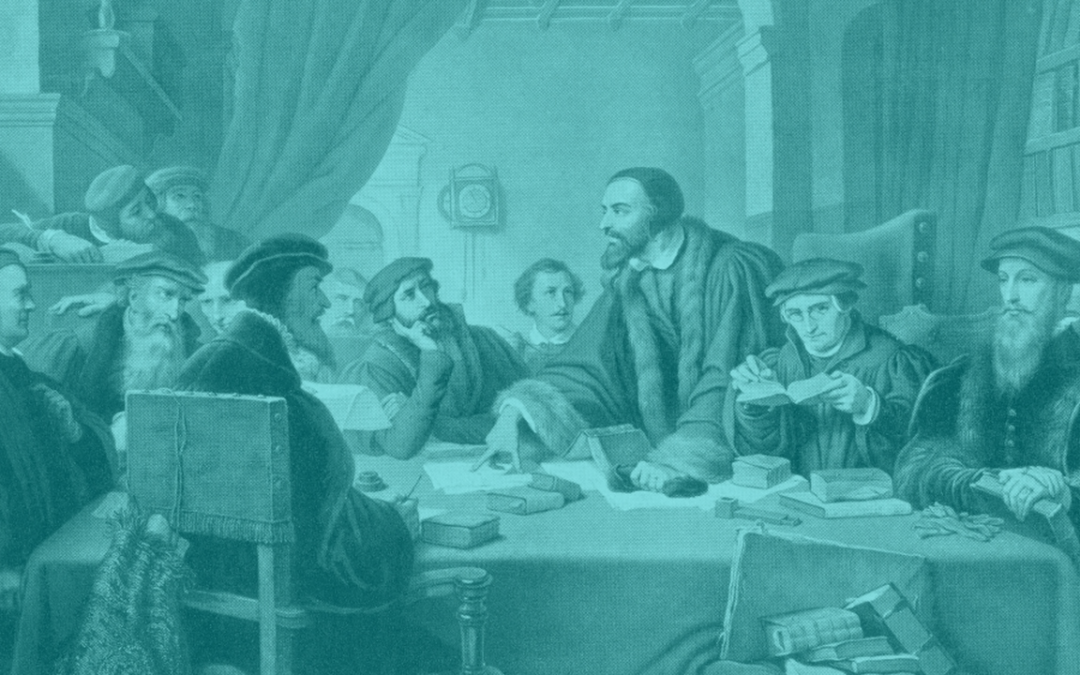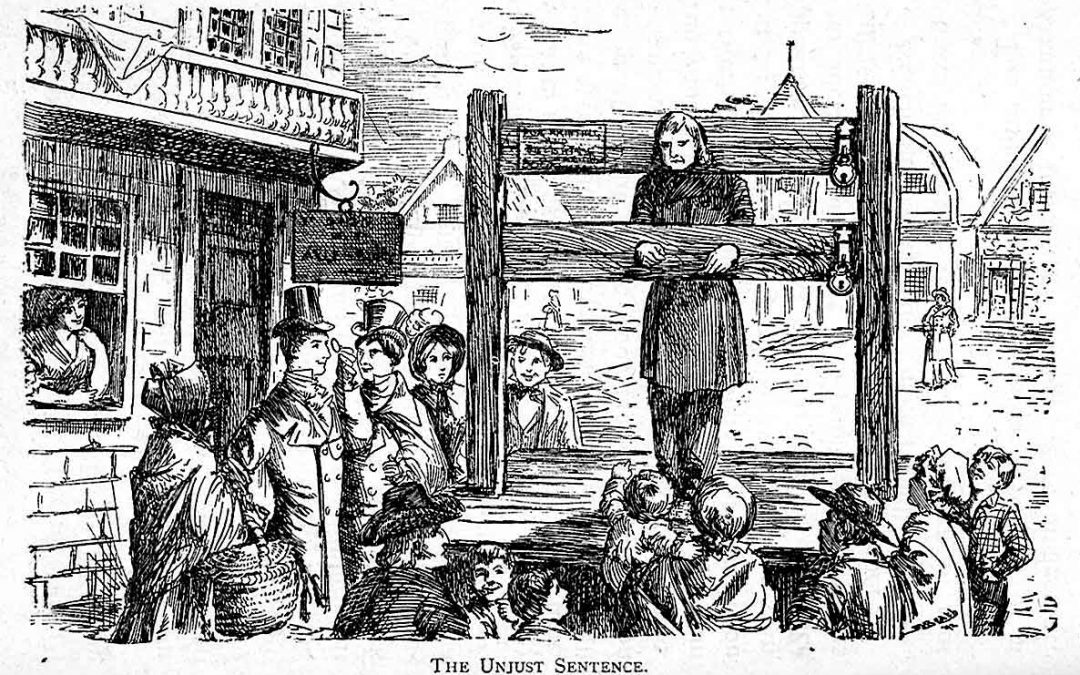
John Calvin & Tradition
John Calvin, the 16th century Reformational giant, highly regarded the theological tradition preceding him.
This is not to say that he wholesale adopted everything handed down to him from previous generations. It is to say, however, that he highly valued the continuity of the core Christian faith as it had been transmitted from the early church onward. As Dr. Richard Muller mentions, “Calvin assumed the catholicity of the Reformation and, accordingly, the continuity of the Reformation with the Christian truths taught by the church fathers…”[1] While Calvin in no wise considered the truth of the Scriptures contingent upon the judgment of the church, he nevertheless made the assumption that there were some things Christians have always believed concerning what the Scriptures teach, and that these things couldn’t be denied without calling into question the integrity of the Scriptures themselves.
The goal of this article is to set forth an earnest and brief survey of Calvin’s use of those subordinate authorities, particularly as they exist in the early creeds of the Christian church.
The Use of the Term “Tradition” In the Early Reformation
In the 16th century, “tradition” was a technical term denoting a coordinate authority alongside Scripture. The “tradition” of the Roman Catholic church was an ecclesiastical prerogative to infallibly interpret Scripture and implement long-standing practices that themselves did not exist in Scripture at all. Tradition was something other than the Scriptures, and it was binding. Pope Pius IX once remarked, “Tradition! I am tradition!” An apt summary, perhaps, of how the collective whole of the Romish institution thought of itself.
Since “tradition,” as a term, was technically limited to Rome’s conception of it, such a word did not enjoy wide-spread positive use among the Reformers. Today, when we say “tradition,” we might be referring to anything and everything that may have been handed down from one generation to the next. Family traditions, political traditions, and religious traditions are all considered traditionary. We no longer assume Rome’s monopoly on tradition, rightly so. And, within the writings of the Reformers, it can be seen that they themselves made appeal to what would formally constitute exegetical and theological traditions, indicating they did not, of course, do away with tradition, per se.
Calvin on the Superiority of “Conciliar” Interpretation Over Individual Interpretation
Calvin generally thought of biblical interpretation as a task to be done in concert with the rest of the Christian church. It was not predominantly an individualist effort, but a churchly one. He writes:
We indeed willingly concede, if any discussion arises over doctrine, that the best and surest remedy is for a synod of true bishops to be convened, where the doctrine at issue may be examined. Such a definition, upon which the pastors of the church in common, invoking Christ’s Spirit, agree, will have much more weight than if each one, having conceived it separately at home, should teach it to the people, or if a few private individuals should compose it.[2]
That the whole would have more weight than the parts becomes an evident sentiment throughout Calvin’s work. It’s obvious enough that he’s working within an interpretive tradition. For he cites Augustine almost more than anyone else. Chrysostom might be a close second. He marshals the words of these men, not in order to undermine Scripture’s authority, but to show that he’s working within the accepted interpretive scheme of Christ’s people. He’s simply making himself accountable to his brethren. As Muller says, “Calvin’s theology evidences a healthy respect for the patristic tradition.”[3]
While anticipating certain reactions to his own placement of councils, Calvin clarifies where he situates creeds within the order of churchly authority. Scripture always remains primary, but the creeds, he says, have a “provisional judgement,” which must be considered. He writes:
What then? You ask, will the councils have no determining authority? yes, indeed; for I am not arguing here either that all councils are to be condemned or the acts of all to be rescinded, and (as the saying goes) to be canceled at one stroke. But, you will say, you degrade everything, so that every man has the right to accept or reject what the councils decide. Not at all! But whenever a decree of any council is brought forward, I should like men first of all diligently to ponder at what time it was held, on what issue, and with what intention, what sort of men were present; then to examine by the standard of Scripture what it dealt with—and to do this in such a way that the definition of the council may have its weight and be like a provisional judgment, yet not hinder the examination which I have mentioned.[4]
Calvin expressly denies the notion that private interpretation should be given place to overturn the earliest conciliar decisions. At the same time, he does not regard every council to hold equal weight. And in this particular paragraph, he’s not so much referring to the ancient councils, like Nicaea I, Ephesus I, or Chalcedon. He’s referring to councils moving forward. In other words, he’s not casting a blanket of skepticism over age-old orthodoxy, thereby making the individual exegete the final arbiter of biblical interpretive meaning. But he’s situating the councils themselves within the overall framework of biblical authority. Whether or not councils are true depends upon whether or not those same councils prove themselves to be bibline.
Calvin on Biblical Interpretation
Today, individualist assumptions are often brought to the text of Scripture. Now, by “individualist,” I do not intend an individualism concerning which a case might be made that a person should care for himself as a matter of principle.[5] By “individualism,” I mean the general assumption that the individual bible-reader, apart from corporate discourse or accountability, has sufficient ability to make interpretive decisions when it comes to the serious matters of orthodoxy. As has been observed in the previous section of this article, Calvin grants the possibility and reality of individual biblical interpretation. But he understands that a gathering or assembly of God-gifted men adds more weight than the individual is able to bear. The Westminster Assembly is of greater weight than Bob’s private interpretive musings. Calvin considers this a biblical dynamic:
Paul prescribes this method in distinguishing doctrines. For when he assigns the distinguishing of doctrines to the separate churches [cf. 1 Cor. 14:29], he shows what should be the order of procedure in more serious cases—namely, that the churches should take common cognizance among themselves.[6]
Therefore, in terms of biblical interpretation, the individual must put the whole before himself. This basically cashes out in a use of creeds and confessions in the biblical-interpretative effort when it comes to theological disputes over serious matters. Since such documents are products of the gathered churches, they are to be taken more seriously than a single person or their innovative takes just as two or three brethren within a local church hold more authority than a single person. Biblically, individuals, and even groups, who find themselves in disagreement, especially when it comes to “more serious cases,” must make appeal to the chorus of saints. Those who intentionally fail to do so would apparently be considered, by Calvin, haughty or unhinged.
This is not to say the whole church is bound to the Westminster Confession of Faith or the Second London Baptist Confession, as if either of those two documents carried the same exact weight of Scripture. But it is to say that those documents, as they sit within their respective theological traditions, supersede the individual’s biblical engagement and should also be utilized by churches, not only as a way to define their doctrine, but also as a means of remaining accountable to their brethren who went before them. The provisional doctrinal judgment of church history as its represented in creeds and confessions must have a voice today.
John Calvin & “The Great Tradition”
As a term, “the great tradition” doesn’t enjoy much precision. This is partly due to the nature of the term itself. It would be like trying to define the word “Scripture.” We might be able to say, “God’s Word.” But then, obvious questions of the nature of canon may arise. With the great tradition, we may be able to define it as such: inspired doctrine and practice as it has been transmitted from generation to generation, from the first century onward. But even this definition falls short, since it does not take into consideration the Old Testament backgrounds of the New Testament, interpretive method, etc. And, of course, the question arises, “Who decides what is biblical and what is not?”
As we look at Calvin, we quickly notice that he perceives the source of such a tradition to be Scripture alone, or sola Scriptura. There is no other source from which to derive articles of faith, or specially revealed religion. It does not come from the church. It does not come from the heathen. The Christian religion has its genus in special revelation as it has been recorded in the pages of the Bible.
What accounts for the transmission of that revelation to us? Issues arise, such as the lack of original Scriptural manuscripts, the early church that knew nothing of a fully-printed New Testament, and so on. Moreover, the philosophical assumptions of the Old and New Testaments, whilst largely lost in today’s society, continue to be assumed by Scripture since Scripture doesn’t change with the times. How, then, do we account for all these variables? I want to suggest we appeal to interpretive and doctrinal history in order to provide ourselves with accountability on both fronts. Calvin writes:
Thus, when Arius rose up, the Council of Nicaea was summoned. By its authority it both crushed the wicked efforts of that ungodly man, restoring peace to those churches which he had troubled, and asserted the eternal deity of Christ against his sacrilegious teaching. Then, when Eunomius and Macedonius stirred up new tumults, the Council of Constantinople provided a like remedy for their madness. At the Council of Ephesus, Nestorius’ impiety was overthrown. From the beginning, then, this was the ordinary method of maintaining unity in the church whenever Satan began any machinations.[7]
Consider modern-day aberrations of the doctrine of God. We know the Scriptures have all we need in order to know God. However, as individual persons, we need help. Otherwise, we are prone to twisting and contorting the text to fit our fancy. Thus, a “peer review” is needed in terms of how we interpret God’s Word. This is the accountability of the brethren, both within our respective local churches, but also throughout the whole history of Christianity. Calvin assumes the purity of the creeds and statements formed in the earliest centuries of the church’s history when he writes:
Thus those ancient Councils of Nicaea, Constantinople, the first of Ephesus, Chalcedony, and the like, which were held for refuting errors, we willingly embrace, and reverence as sacred, in so far as relates to doctrines of faith, for they contain nothing but the pure and genuine interpretation of Scripture, which the holy Fathers with spiritual prudence adopted to crush the enemies of religion who had then arisen.[8]
Biblical interpretation should take place within a corporate setting, that of the Christian church as it exists throughout history. The local church should be able to find itself within the interpretive and doctrinal tradition of creedal and confessional history, otherwise, they become a law unto themselves. And orthodox confessions ought to find continuity with the earliest creeds of the Christian faith, and they do. Of course, all the above must be fully and finally grounded in the text of Holy Scripture.
Conclusion
Scripture and tradition, unlike the Roman Catholic understanding, do not have to be two different sources of divine revelation or authoritative teaching. Scripture is the source, which means “tradition” is the general continuance of the church in the belief and practice of the Holy Scriptures. This doesn’t make Christians infallible. But it does recognize that there is a general continuity throughout the past two millennia of Christian belief and practice that is the result of special revelation; and, that this belief and practice has been accurately reflected in creeds and confessions. Calvin himself seems to have this same understanding.
As we deal with the current effort to overturn these age-old creedal imperatives among those who claim a “Reformed” heritage, we should remember that the Reformed themselves would not have given up so easily on the subject-matter of the historic creeds. Divine simplicity, trinitarian consubstantiality, and inseparable operations are creedal and confessional imperatives. And, though certain men seek to throw these long-held doctrines into question, we can be confident that the Reformers and the post-Reformation Puritans would unhesitatingly point them to the earliest ecumenical creeds and the confessions.[9]
Resources:
[1] Richard A. Muller, Post-Reformation Reformed Dogmatics, vol. II, (Grand Rapids: Baker Academic, 2003), 342.
[2] John Calvin, Institutes of the Christian Religion & 2, ed. John T. McNeill, trans. Ford Lewis Battles, vol. 1, The Library of Christian Classics (Louisville, KY: Westminster John Knox Press, 2011), 1176.
[3] Muller, Post-Reformation Reformed Dogmatics, vol. II, 74.
[4] Calvin, Institutes, 1171.
[5] Cf. The Metaphysical Foundations of Love by Anthony T. Flood.
[6] Calvin, Institutes, 1176.
[7] Calvin, Institutes, 1176–1177.
[8] Calvin, John. The John Calvin Collection: 12 Classic Works. Waxkeep Publishing. Kindle Edition. Loc. 21663.
[9] Cf. Herman Witsius’ Sacred Dissertations on the Apostles’ Creed (2 volumes).





